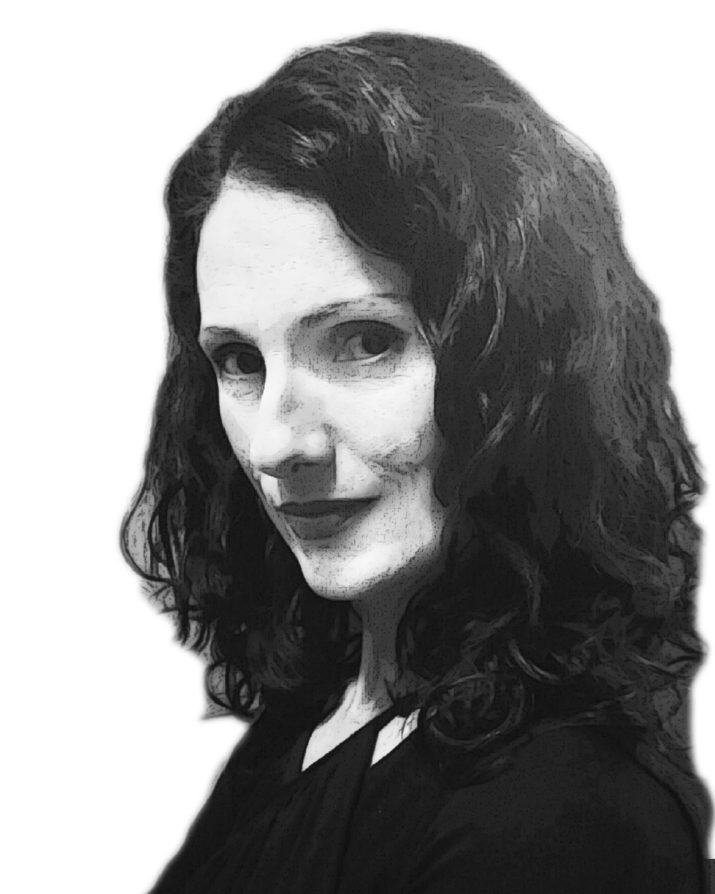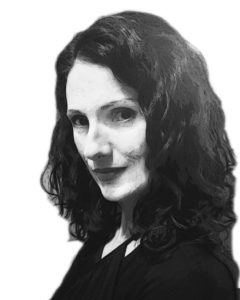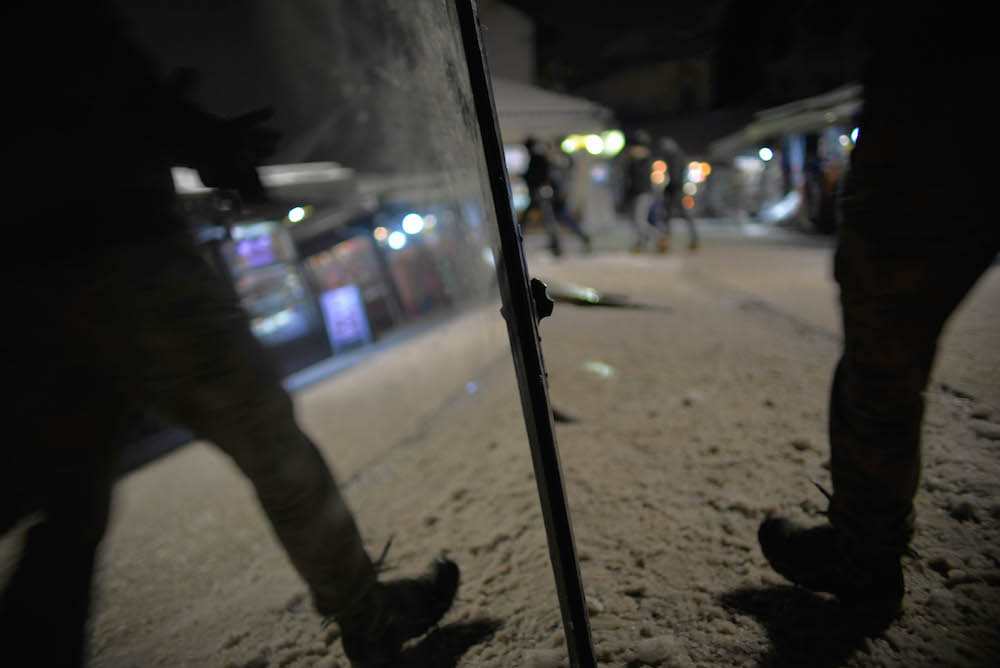

It’s not that my father was a gambling man; after all, he never entered a casino in his life. He just had a way with cards and thought it would be a pity not to make the most of it, I guess. In the Yugoslavia of the 1970s, groups would gather in homes over a game of cards, playing as day turned slowly into night and night gave way to the next day, until one person finally left with a nice profit. Dad was always on the lookout for a new challenge, so when I was told one winter break that we would go visit my father’s sister and her husband for a few days, I kind of suspected the real reason behind the family holiday.
On our drive up north, Dad gave me the talk. He said this would be a special time just for the two of us—father and son going on a trip. He said that Uncle Petar loved a good game of cards and that they would play “just for sport.” He said he would let me watch for as long as I wanted. I’d been nagging him for years to let me watch him play.
At that particular moment, however, I didn’t give a rat’s ass about spending time with my father or watching him play cards. All I thought about then was a girl who lived on the seventeenth floor of our apartment building and whom I’d been seeing for the past four weeks. She was a whole year older, already fifteen and very popular, and I couldn’t believe my luck when she accepted my invitation to the movies. We went to see Star Wars, which I’d picked, and she was so clearly bored that I decided to take her hand out of sheer fear that she would get up, tell me I was a loser, and walk out. I was in for a surprise. Not only did she not withdraw her hand, but she squeezed my sweaty palm and smiled with satisfaction.
She did ask for a lot of attention. During school I’d ask her to meet afterwards, and she wouldn’t give me an answer. Once we were back at our apartments, she’d call me and ask why I hadn’t come over yet, at which point I would rush up the ten flights of stairs, not bothering to wait for the elevator. She’d let me stay for fifteen minutes before sending me home on the excuse that she had to do homework. I guess I knew she was toying with me, but she would also let me kiss her, and that was all that mattered.
I wasn’t an experienced kisser by any means. In fact, she was my first, barring a clumsy and almost accidental kiss I shared with a daughter of family friends on New Year’s Eve in the sixth grade. I’d noticed the girl from the seventeenth floor a year before, first in our apartment building and then at school. She was the most attractive girl I’d ever seen. It took me a year to get her to notice me, and in all that time, I never even looked at another. The first time we kissed, I was so happy that I didn’t realize how mechanical the kiss was. She moved her lips a little, but they were cold and disinterested. Still, I analyzed it later and had to conclude that the kiss was great. How could it not be with a girl that pretty?
When she heard that I’d be gone with my dad for almost a week, she threw a tantrum. She said I didn’t really care for her or I would’ve found a way to avoid the trip. I tried playing sick, coughing and sneezing, but my father said the cough was caused by the infamous Sarajevo smog and that some fresh country air would do me good. She wouldn’t even kiss me goodbye, although I had promised to write every day. So, while we were driving through the snow-covered mountains in a Russian Lada with a busted heating system, I was already composing a letter in my head: “It’s been just a few hours since I left, and I already miss you …”
Aunt Lidija and Uncle Petar lived in a small town in northern Bosnia, the birthplace of my father. We parked in front of a two-story house with a spacious yard on a street lined with square homes, many without a façade, only red bricks between the people inside and the elements. Aunt Lidija’s house, in contrast, had an expensive façade of white stone. Uncle Petar, a tall, burly man, opened the wrought-iron gate and welcomed us in. He gave me a firm handshake and a slap on the shoulder that almost sent me nose down in the snow. “Matej, you’ve grown so tall! A proper lad! C’mon, get in!”
Aunt Lidija stood in the doorway, a tiny blond woman with horn-rimmed glasses who seemed no bigger than a child next to her husband. She kissed me on both cheeks and likewise expressed her amazement at my height. It was the first time I realized that, at fourteen, I was as tall as my father, but I also noted that my father’s family was not really on the tall side.
“Your cousins will be so sorry they missed you,” said Aunt Lidija. “They’re having their exams soon, so they couldn’t come this weekend.” Aunt Lidija married right after high school, and their two daughters were already away at college.
Their house seemed as big as a castle to my unaccustomed eyes—I barely remembered our last visit, a few years back, and I walked in awe through a seemingly endless succession of rooms: a living room, a dining area, and a very large kitchen on the ground floor; two bathrooms and four bedrooms upstairs. Most of my friends lived in apartments, which, at best, had two bedrooms. As we were getting ready to sleep in a guest bedroom that night, I asked Dad if Aunt and Uncle were rich. He chuckled and wanted to know why I thought that. “I’ve never seen such a big house, and nice looking, too,” I said.
Dad paused for a moment. “They’re not rich,” he said finally. “Life is just different here. Your mother and I are civil servants, so we’ve been awarded an apartment in Sarajevo, where our jobs are, where all the ministries are, and all the theaters and festivals. We’ll have the Winter Olympics there in a few years. Your uncle has a mechanic’s shop, a private business, so he built his own house. It’s an okay life, I guess, but nothing interesting ever happens in this town. I’d bet that a lot of people here would consider us better off.”
That claim was put to the test the very next day, when Uncle Petar took us to his garage behind the house and showed us his new Mercedes. It was parked outside while four other mechanics—a couple of men and two boys a few years my senior—worked on cars inside. Two other cars were parked in front, ostensibly waiting to be serviced.
“Business seems to be good,” Dad said, waving his hand towards the garage.
Uncle smiled. “It’s not too hard when there’s only one decent mechanic in town.” He went silent and stood next to the Mercedes, as if waiting for Dad to pay attention to the car. “I picked up this beauty in Germany the last time I went there for parts,” Uncle said as he ran his hand gently over the hood. The car was the color of summer grass after a few weeks of drought. “Not much mileage either.”
“Good for you,” Dad replied, and something in his voice made me turn away from the unfamiliar surroundings and look at him. Dad’s eyes roamed restlessly while Uncle’s were fixed on Dad’s face. It looked like Uncle was trying to read him. Good luck with that, I thought. My dad was very skilled at not showing his feelings. I guess the years of playing cards for money taught him that.
“You will have to let me fix the heating in that old car of yours,” Uncle said and put his hand on Dad’s shoulder. “You can’t drive back in this cold without proper heating.”
There was an awkward pause before Dad responded. “Sure thing. If you have time.”
“Cheer up, man,” Uncle said. “The game is set for tonight. And tomorrow we will slaughter the hog.”
While I scanned the neighborhood, my eyes were drawn to a girl sitting at a window in the house next door, playing a guitar. Her dark hair was tied in a ponytail with one loose strand hanging over her eyebrow. Her fingers moved gracefully on the strings.
“Who is that?” I asked.
“That’s Amela. You will meet her tonight,” Uncle said and turned to Dad. “Her father, Ibro, will play with us.”
“Is he any good?”
Uncle’s face stretched in a satisfied smile. “The best there is in this town.”
The house filled with people that evening. I wouldn’t say I was waiting anxiously, but I happened to be close to the door when Amela came in with her parents. She barely reached my shoulder, but I soon discovered that what she lacked in height, she made up for in attitude.
“So, you’re the boy who came from Sarajevo,” she said without a hello. She took my measure in a single glance. “I hear you can’t breathe there all winter because of the smog.”
Hearing someone bad-mouth my hometown didn’t sit well with me, but I was too surprised to come up with a reply. Who did she think she was? I frowned and decided to show my disdain by leaving her alone in the living room and going into the kitchen, but she just followed me. Aunt Lidija was preparing large oval platters of cold cuts, thinly sliced prosciutto, sausage, and cheese with some pickles and chili peppers in the middle.
“Oh, good, you kids have already met.” Aunt Lidija extended a plate with ham and cheese sandwiches to me. “This is for you two, and take these two glasses of juice.”
“Thank you, but I’m not hungry,” Amela said behind me. Aunt Lidija looked at her and then quickly drew breath.
“I’m so sorry dear. I’ll make you sandwiches with cheese only.” Amela started to protest, but Aunt Lidija was already putting cheese on new slices of bread. Within a moment, we found ourselves back in the living room, our hands full and my mind racing to make the obvious connection.
“You don’t eat ham,” I said.
Amela shrugged. “My father doesn’t go to the mosque. But we don’t eat pork.”
The living room was noisy. A dozen people sat on two couches and several armchairs around a long coffee table packed with assorted cold cuts and drinks, laughing and talking at the same time. I saw two upholstered chairs in a corner with a coffee table between them and made my way there. The upholstery was light beige with rosy flowers, and the table was dark wood carved with elaborate geometric patterns. The set seemed new, but I remember thinking how terribly old-fashioned it looked. Amela was trying to make conversation.
“Do you play any instruments? I do. I’m trying to put together a girl band. We could play together some time?”
“I don’t. I mean, I play basketball,” I said and immediately felt stupid.
“Of course you do.” I felt cornered and insufficient, and I almost dropped my plate as I was trying to set it on the table, but she was relentless. “Do you ski? We go skiing every winter. In Slovenia, not Sarajevo. It’s much better in Slovenia. My father used to work there.”
“Oh, yeah? He’s one of those laborers who give Slovenians reasons to joke about Bosnians?” I said and regretted it instantly. I’d only just met her, and already she was making me say insulting things that were completely out of character for me. But she just laughed it off, her dimples becoming more prominent.
“No, silly, he’s an engineer. And he’s going to beat your father at cards tonight.”
The breezy certainty of her statement made me look at the adults gathered around the table. Wisps of cigarette smoke hung in the air, and the room echoed with merry voices and laughter. Dad was talking to a woman who threw her head back as she laughed, presumably at something he was saying, and her large breasts shook vehemently. Uncle Petar’s face was flushed, likely from the rakija he was drinking. He was talking to Ibro, who was neither laughing nor drinking rakija. He glanced at us, and I met his green eyes for a moment—Amela’s eyes. I felt an inexplicable sense of foreboding.
“You are silly,” I said to Amela more forcefully than I wanted. “There’s no one better at cards than my father, not even in Sarajevo, let alone in this dump.”
Amela didn’t flinch. Only a corner of her mouth came up as she said, “We’ll see about that.”
Unnerved, I left my half-eaten sandwich and Amela behind and moved closer to the table to hear the conversation. Uncle Petar was entertaining.
“Tomo was already a student in Sarajevo when I started dating Lidija. Her parents didn’t approve, they were planning to send her to Sarajevo to study. She was good at school, and I was just a mechanic’s son, you see? So we had to hide. But when Tomo came home one summer, we became friends. Unexpected, wasn’t it, Tomo?”
I followed Uncle’s eyes to my father’s face. Dad met Uncle’s gaze, but I couldn’t read my father’s expression. “Totally” was all he said. I tried to imagine Dad and Uncle as young men and couldn’t. Aunt Lidija was standing in the kitchen doorway, her arms folded.
Uncle continued, “Tomo was already quite a card player. He used it as an extra source of income in Sarajevo. So, as soon as he got back home for the summer, he found a group to play with. Those were some shady types, I tell you, and they didn’t like losing. I happened to be close by when they chased Tomo one night.”
Uncle stopped for dramatic effect. All eyes were on him. Dad looked at his wristwatch. I could’ve sworn he was bored. But I wasn’t bored at all. I’d never heard this story before.
“So what happened?” The question came, eventually, from the woman with large breasts. Uncle shrugged in false modesty.
“Well, there were three of them, but I was quite big even then. I came between them. Gave more than I got. They didn’t bother Tomo again. And he became my advocate with his and Lidija’s parents.”
All eyes turned to my father. His lips were tight. No one asked the obvious question: what was he doing during the fight? I wanted to ask but couldn’t force myself to utter a sound. It seemed to me that the air in the room was made of glass that would shatter if I spoke. I could see the scene in my head—my father cowering behind while Uncle, larger than life, quickly beat the crap out of three enraged hooligans.
“Are you going to talk all night, or are we going to play some cards?” Dad’s words were nonchalant.
“Oh, is it time already?” Uncle clapped his hands, then rubbed them, and the spell was broken. “Let’s set up the table then!”
As if on command, everyone started to move. Aunt Lidija threw a crisp green tablecloth over the round breakfast table, and Dad, Uncle, Ibro, and a fourth man I didn’t know took their places, while others gathered around to watch. Everyone smoked, but they didn’t drink any more, at least not alcohol. Uncle, whose huge body sweated profusely, asked occasionally for a “sherbet,” a sweet fruit syrup mixed with chilled water. Aunt Lidija brought whatever the players asked for and emptied their ashtrays. Before two hours were up, it became clear to everyone that the battle was between Dad and Ibro; the other two players were just extras in the drama of the night.
I stood at the table and watched the card game, just as Dad had promised. I thought of the previous years when my parents would make me go to bed, or simply to my room, when we had people over and they played cards. I had wanted this for years, and now that I had it, it didn’t seem like much. The men stood around the table and watched the game, while the women sat across the room and chatted; they could’ve been at the far end of the world. Not Amela, though: she was standing next to me. I tried to ignore her warm presence and the knot in my stomach. She annoyed me, but I’d been attracted to her from the moment I saw her at that window the day before, and no amount of sassiness from her could change that. If anything, her attitude made me more interested.
Amela was finally quiet, her focus on the card game. I kept forcing myself to pay attention. I had a good view of Ibro, her father, from where I stood. He would look at his cards once, then put them on his chest and stare at the table and the other players, always rocking in his chair, his eyes half closed. Dad sat across from him, straight-backed but relaxed. I kept stealing glances at Amela. I wished someone would tell us to get lost. I could now think of a thousand places I’d rather be—any place, in fact, as long as she was there and no one else.
“See, I told you my dad would beat yours,” Amela whispered in my ear. Dad was losing at the moment, but not by much, and he had told me once that losing a little could be used to gain advantage—the opponent would feel an unfounded optimism and become careless. “We’ll see about that,” I replied, using her words from earlier. I couldn’t resist a smug smile. But she met my eyes, and my smile, measure for measure.
“If your father wins, I’ll kiss you,” she said. I thought she was joking but played along. “Then get ready for it,” I said. She wasn’t done and added, “And if my father wins, you’ll walk down our street wearing nothing but your underwear.”
Now that was an inventive bet. I laughed and pretended to take it. Obviously, I couldn’t back down. I had to add some terms, though. “Sure thing. But if my father wins, you will not only kiss me, you will kiss me in the street—in front of your house.”
Amela didn’t flinch. “Your father will never win,” she said with a fierce certainty and offered a handshake. Her hand was soft, but her grip was strong. I felt goose bumps all over. I didn’t want to let go.
The night became wrapped in cigarette smoke and my confused feelings. I stopped watching the game and looked at Amela instead. She was not as pretty as the girl back home, but she was somehow more alive. She emanated a kind of warmth I had never felt before. Sometimes she would look back at me, and her green eyes would seem to be burning. I felt my insides contract.
The game continued through the small hours of the night. Most women had left, and everyone had forgotten about Amela and me. We became tired and crashed on the couch, our heads on opposite ends, our feet touching. I felt electric currents running through my feet, but I didn’t withdraw them, and neither did she hers. I reveled in the new feeling I didn’t have a name for.
Our fathers chased each other one hand after the next in a game that was too close to call. Dad’s forehead was deeply creased and sprinkled with sweat, while Ibro tilted his head to the side as he squinted at his cards. Amela and I fought off sleep for as long as we could, but we lost that battle at some point. It was morning when Dad woke me. Amela was gone, and so was everybody else.
“Who won?” I asked. My voice cracked, and I remember thinking it must’ve been from all the smoke I inhaled that night. Dad smiled.
“Well, I did, of course. Though Ibro fought like a lion until the end. You need to get up and get ready for breakfast. I have to help your uncle with the hog.”
I stumbled to the bathroom and splashed water on my face. My head was buzzing and my neck was sore, but all I could think of was Amela and when I would see her next. As I was changing from the clothes I’d slept in, I found a forgotten letter in my pocket. I had already posted two since I’d arrived, but I was looking at this one and it seemed that someone else, long ago, had started writing it, though it was only yesterday. I suddenly felt bad. I went to the kitchen, shoved some scrambled eggs down my throat, and sneaked out to head to the post office.
The post office was about twenty minutes on foot, but I made wrong turns more than once, and it took forever to get there. I wasn’t thinking of the girl I was about to send the letter to; I thought of Amela and the previous night. I was sorry I wasn’t nicer to her. Why didn’t I suggest coming over to her house today so she could show me her guitar? Or, even better, why didn’t I ask her to go out for a walk? Or perhaps they had a cinema here. We did talk about movies at some point. She said she wanted to see Star Wars.
I stood at the small post office for a long time before I posted the letter. It was in my hands, somewhat crumpled and foreign. It didn’t feel right to mail it when everything had changed. But I had promised to write. I couldn’t break it off in a letter. I should send it, I thought, and deal with the situation once I got home.
I walked back slowly to the house. Sending the letter somehow spoiled the joy I felt when thinking of the previous night. I tried to shake off the negativity by walking, but it was cold out and a layer of ice had stuck to the pavement, making the footpath treacherous.
When I finally got back to the house, I saw the two boys from Uncle’s garage holding a hog in the yard. The animal was huge. I had no idea they could grow that big. Father had mentioned hog butchering, but were they really going to do it in front of the house where they lived? I had never seen a living creature be killed, and I watched, mesmerized, as Uncle approached the hog with a sharp pointed knife in his hand. I saw Ibro on the other side of the fence and heard his angry yell.
“You said you wouldn’t do that in your yard anymore!”
“Oh, yeah? You said you’d beat Tomo at cards, and that didn’t happen either, did it?” Uncle didn’t even look at Ibro as he said this, just bent over and took the hog by the ear with his left hand. The animal started to scream, although the knife hadn’t touched it. The animal knew. It tried to scramble, but the two boys pinned it using all of their weight.
Uncle’s eyes turned to me for a moment. “Where is your father, Matej? Too fainthearted to watch this?” The hog’s high-pitched cries were piercing my eardrums as Uncle stabbed its throat, then pulled the knife out. A splash of dark blood colored the snow, and the animal tottered. Uncle took a tin wash basin and pushed it under the hog’s throat. A pool of blood accumulated almost instantly. The animal’s small eyes were open, and I could swear they were fixed on me.
“Matej!” The shout came from Dad, who was approaching fast from the gate. “Where were you? You were gone for hours, no one knew where you were! I went looking for you!”
I directed a single desperate look at him before I threw up all over his shoes.
The hog’s cries seemed to go on for hours. There was no place in the house where they couldn’t be heard, and I kept hearing them long after they ceased. I refused lunch and pretended to read in my room. Aunt Lidija came in the afternoon to tell me that Amela was at the door, asking for me. I felt queasy.
When I went out, she was standing in the street, out by the gate. I walked to her with hands in my pockets, willing myself not to look at the place of carnage. We said our hellos and then stood for a long time in silence. All the things I had wanted so badly to tell her that very morning disappeared from my mind.
“I came to honor our bet,” she said finally. “Your father won. You’re entitled to a kiss.”
I don’t know what I expected, but that declaration was certainly not it. I realized I’d forgotten all about our bet from the previous night. In fact, I had never thought she was serious about it to begin with. I must’ve looked stunned, because she sounded testy when she spoke again.
“I don’t want you to go back home and say that people here don’t honor their word. So, go ahead!”
We were standing in the street, in plain view of anyone around us. Before I could stop myself, I looked around and caught a glimpse of Uncle gutting the hog, which was hanging from its hind legs under the lean-to next to the house. My stomach lurched.
“What, are you afraid someone will see us? Wasn’t that the whole point? C’mon, let’s get it over with.” She leaned towards me, a ferocious look in her eyes. But I didn’t really see her. All I could see were the hog’s guts falling out under Uncle’s skilled hand. I backed away.
“I can’t!” When I finally spoke, it was a yell. I felt bile in my throat, and I clammed up, afraid I’d vomit all over her.
Her face contorted with rage at the insult. She spat her words at me. “Of course you can’t. You’re a pussy. As if I would ever want to kiss a pretentious pork-eater like you.”
She stormed away, a ball of hurt and fury. I don’t know how long I stood there or how I got back into the house. We stayed with my Aunt and Uncle for two more days, during which I rarely ventured outdoors. I didn’t write another letter to the girl back home, and I refused to eat meat. I saw Amela just one more time—at the window where I had seen her first. She looked at me, scowled with disgust, and closed the curtains.
We left Aunt and Uncle’s with a trunk full of fresh pork and a perfectly functioning heating system. Dad insisted that he pay for both, but Uncle only accepted money for the car parts he had to change. “Nonsense, Tomo. We’re family, and family help each other, don’t they?” Dad was forced to agree.
We spoke little on our way home. He never mentioned my vomiting at the hog slaughtering, and I never mentioned Uncle’s story of their youth. Dad tried to talk about basketball, how I should continue going to practice in order to make the A-team in a couple of years. “I’m not sure I’ll ever have the height,” I said before I could think. To the best of my knowledge, that was the first time in my life I’d been sarcastic with my father. He looked at me with surprise, and a little sadness, but said nothing. It was like an invisible wall of disappointment was raised between us, one that would linger for many years to come.
When we got to our apartment building, Dad pulled three letters from our mailbox. They were the letters I had sent to the girl on the seventeenth floor. She had returned them all to me, unopened.

Photographic response by Sanja Vrzić
Daniela Valenta has written fiction for as long as she can remember. She is a member of the Sarajevo Writers’ Workshop. Her short story “The Ice Cream Orchard” was published as part of Narrative Witness (Caracas-Sarajevo), an exchange produced by the University of Iowa’s International Writing Program. She holds a BA in English from the University of Sarajevo and an MS in Communications from Ohio University, where she studied as a recipient of the Ron Brown Fellowship, awarded by the U.S. Department of State. She worked briefly as a journalist, and since 2003, she has made a career in conference interpreting. She lives in Sarajevo, Bosnia and Herzegovina.
Sanja Vrzić is an architect, photographer, and graphic designer. She was born in Sarajevo, where she completed a degree in architecture in 2010. Since then, she has worked as a freelancer in Sarajevo, Paris, and Nice. Her expertise is in landscape, documentary, and cultural photography.
Published on November 2, 2017.
Click here to read more on The Borders Project.




